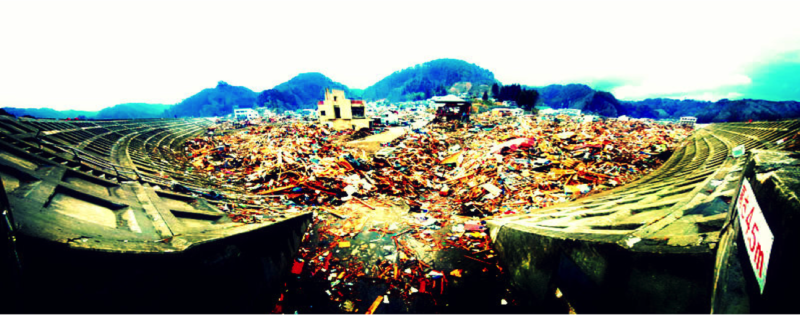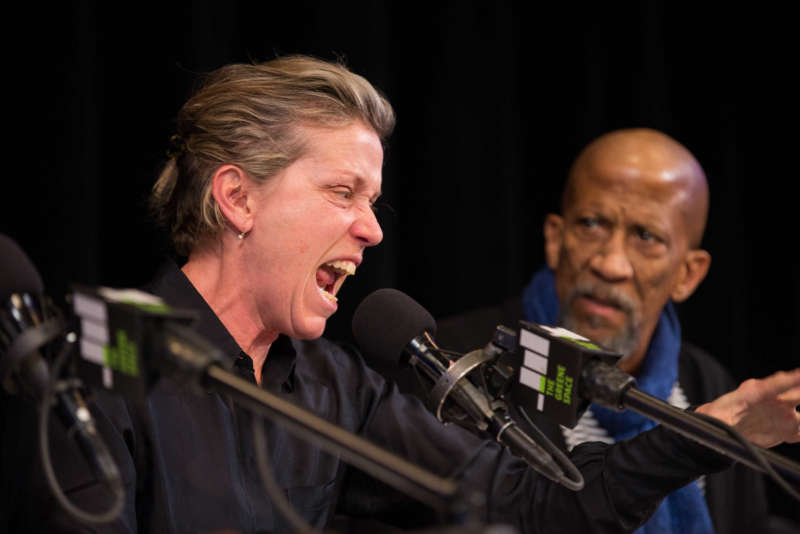The Susie King Taylor Project features dramatic readings by acclaimed actors of selections from Susie King Taylor’s Civil War memoir Reminiscences of My Life in Camp, as a catalyst for a guided audience discussion, grounded in the perspectives of Black Nurses and Veterans, aimed at generating compassion, awareness, connection, and much-needed healing.
In her searing memoir, Susie King Taylor—the first Black Nurse to serve in the Union Army during the American Civil War—describes her four years, without formal training or pay, caring for wounded and sick soldiers of the 33rd United States Colored Infantry Regiment. She also offers her reflections on life and conditions after the war in a powerful indictment of the Jim Crow South that speaks to the present moment with prescience and clarity.
Featuring Tracie Thoms (Rent, The Devil Wears Prada).
Presented by Theater of War Productions, DAV (Disabled American Veterans), and The Susie king Taylor Center for Jubilee.
Co-presented as part of The Nurse Antigone initiative by Theater of War Productions, the Johns Hopkins School of Nursing, the Johns Hopkins Berman Institute of Bioethics, the Resilient Nurses Initiative - Maryland.
Supported by the Laurie M. Tisch Illumination Fund.
Support for our digital programming is provided, in part, by the Mellon Foundation.
Co-facilitated by Bryan Doerries and Charlaine Lasse.
Directed by Bryan Doerries. Produced by Marjolaine Goldsmith.
The Susie King Taylor Project will take place on Zoom Webinar and can be accessed on personal devices. The event Zoom link will be distributed via email and available to registered attendees starting two days prior to the event.
This event will be captioned in English.
All of Theater of War Productions' events follow the same format:
- The performers will read the text.
- Community panelists will kick off the discussion with their gut responses to what resonated with them across time.
- We will open the discussion to the audience, facilitated by Bryan Doerries and Charlaine Lasse. During the discussion, please raise your hand using the button at the bottom center of the screen. If called upon, please accept the invitation to be promoted to speak and you will be visible and heard by the entire audience for the duration of your comments. If you would prefer not to be seen, please disable your video.
Cast Members
-

Tracie Thoms
Explore Projects
-
 Natural DisasterThe Tohoku Project
Natural DisasterThe Tohoku ProjectThe Tohoku Project: Sumidagawa presents powerful dramatic readings by professional actors of Sumidagawa, a Noh play from the early 15th Century that timelessly depicts the unique challenges faced by parents in the wake of unimaginable disaster. Each reading is followed by the responses of community panelists, culminating in a lively, facilitated audience discussion. This interactive event promotes healthy, constructive dialogue about the lasting impact of the Tohoku disaster upon individuals, families, and communities—fostering compassion, understanding, awareness, and positive action.
-
 War & Mental HealthThe Tecmessa Project
War & Mental HealthThe Tecmessa ProjectThe Tecmessa Project presents readings of Sophocles’s Ajax, an ancient play about the visible and invisible wounds of war, as the catalyst for discussions focusing on the unique challenges faced by military family members, including couples, children, caregivers, and communities. This project is designed to promote understanding, compassion, and positive action.
-
 IncarcerationPrometheus in Prison
IncarcerationPrometheus in PrisonPrometheus in Prison is an innovative public health project that presents readings of Aeschylus’ Prometheus Bound, an ancient Greek play about god who is imprisoned for stealing fire and giving it to humans, as a catalyst for powerful discussions about the challenges faced by individuals, families, and communities whose lives have been touched by the criminal justice system. For the past decade years, this groundbreaking project has been used to open up healing dialogue in a variety of settings, including prisons, detention centers, and public venues throughout the country and the world.